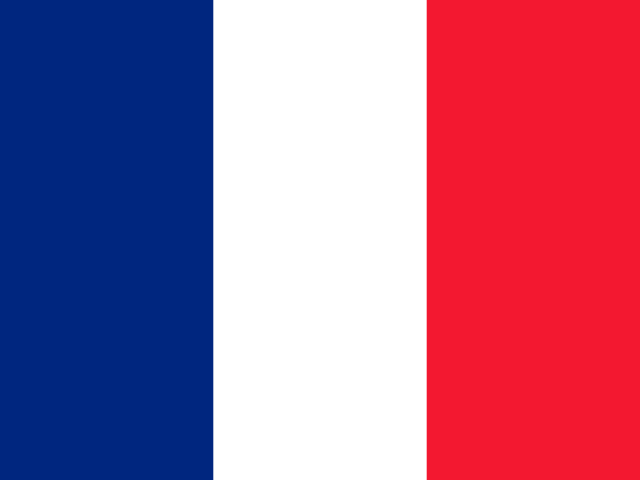
France
In France, it has been a year of billionaires buying media assets. Amidst increased concerns about media independence, debates about how regulation can support media pluralism and how journalists can approve appointment of leading editors are echoing through the work of the Estates General of News created by President Macron.
In spring 2024 it was announced that leading 24-hour TV channel BFMTV, previously owned by the billionaire Patrick Drahi, is to be sold. The purchaser is the billionaire shipping magnate Rodophe Saadé, whose group has bought the Marseille-based newspaper La Provence and the former business paper, La Tribune, now reborn as a Sunday newspaper La Tribune Dimanche, and a 10% share in the TV station M6.
During the summer of 2023, journalists at the famous Sunday newspaper Le Journal du Dimanche (JDD), recently acquired by billionaire Vincent Bolloré, held a 40-day strike against the appointment of a new right-wing editor-in-chief. Fearing that the new leadership might convert the paper into a tool for the far right, many politicians and personalities supported the movement. Almost 90% of the journalists resigned and it led to a major debate in France about the role of journalists in approving the editor-in-chief. Some presume Bolloré will adopt the strategy with the JDD that he did with CNews, which became the closest thing in France to a Fox News-type channel in the years after he bought it. However, a dramatic decision by the French highest administrative court may change this, by calling on Arcom, the media regulator, to better enforce its political plurality requirements over CNews.
Les Echos, a daily business newspaper, has had a year without an editor after the journalists and owner (LVMH) failed to agree on the appointment. In September 2023, the journalists voted against the owner’s proposed candidate, the current deputy editor. LVMH’s next candidate, Christophe Jakubyszyn, a famous economic journalist from BFM Business, was submitted to another vote by the newsroom in April 2024 and approved, by 213 for and 20 against.
Les Echos, Le Monde, and some other newspapers have this ‘right of agreement’. The question of how it could be extended to any newsroom in France, where commercial media support 70% of the cost of news1 in France compared to 30% by public TV and radio, together with how regulation should protect media independence, is part of the agenda of the Estates General of News launched by President Macron in October 2023. Proposals are expected in June 2024.
Relations with platform companies will no doubt feature in those recommendations. So far relations between French publishers and platforms have ebbed and flowed, with a mixture of fines and deals. In March 2024 the competition authority fined Google €250m on the grounds of not respecting some of its commitments to publishers on remuneration for content shown online, as well as how information was shared with them.
Le Monde is the first French newspaper to sign a lucrative deal with Open AI: it allows ChatGPT users to access content from Le Monde. Le Monde English, which was launched in 2022, also uses AI technologies to translate the first draft of each article, which humans then revise.
There’s been no increase in the low level (11%) of our survey respondents paying for news online, but France is unusual in that our respondents who pay said they had an average of two subscriptions – which is only the case in a few of the other countries in the survey, such as the United States. Le Monde, Le Figaro, and Le Mediapart are the top three outlets that people have subscribed to online and they are all seeing increases. Le Monde’s digital numbers hit 527,000, Le Figaro 227,000, and digital-born Mediapart 220,000 subscribers. The last of Mediapart’s co-founders handed over to a new female CEO/Editor-in-Chief, Carine Fouteau.
Among the successful latest disruptors are alternative voices such as Hugo Travers, known as Hugo Decrypte,2 whose company now employs 25 people and has just launched a new product named Elan targeted at the young as they look to enter working life. Decrypte’s YouTube explainers for younger audiences are very popular, so popular in fact that President Macron chose to be interviewed by him. Last year, Hugo Travers and his team were refused a French press card, because the authorising committee argued that there is a difference between being a journalist and a content creator. After some negotiations they now have a press card, on the grounds of having more written pieces published online rather than just videos.
Alice Antheaume
Executive Dean, Sciences Po, Journalism School
Changing media
TV remains the most accessed news source in France, along with online media. Printed newspapers remain in long-term decline, requiring legacy media companies to find new digital revenue streams.
Pay for online news
11%
Listen to podcast in the last month
28%
Trust in news overall
31%
=38/47
France still ranks low for overall news trust (31%) by international standards. Most brands, however, have increased their trust levels slightly this year, with regional or local papers being most trusted of those we survey, followed by public service brands and Le Monde, the leading quality newspaper brand. Among those included in our survey, BFMTV is the brand with lowest trust (38%), along with 40% who distrust it.
RSF World Press Freedom Index
21/180
Score 78.65
Measure of press freedom from NGO Reporters Without Borders based on expert assessment. More at rsf.org
Footnotes
1 A figure largely based on the cost of employing staff and freelance journalists and associated journalism-related costs.

